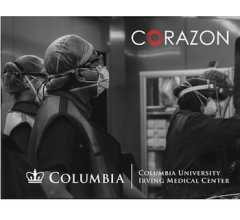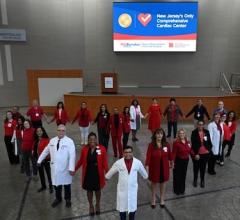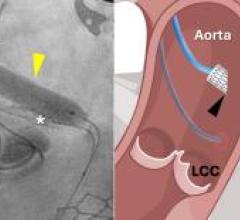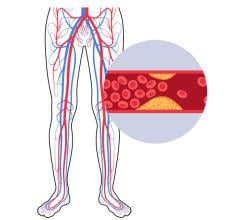April 28, 2008 - Minimally invasive heart robotic bypass surgery could lead to faster recoveries for patients and a greater likelihood of the new bypass vessels staying open, and may be more cost-effective, according to a University of Maryland study on robotic heart bypass surgery. The study, "Superior Financial and Quality Metrics with Robotically-assisted (DaVinci) Coronary Artery Revascularization," was presented at the 128th annual meeting of the American Surgical Association in New York on April 26, 2008. Using a surgical robot increases the cost of each bypass case by about $8,000, according to Robert S. Poston, M.D., a cardiac surgeon formerly at the University of Maryland Medical Center who is the lead author of the study. He says those additional expenses, which are due to equipment and supplies, are offset by a shorter hospital stay, reduced need for transfusions and fewer post-surgical complications that would require a patient to be re-admitted to the hospital. Especially with high-risk patients who have lung or kidney disease or other health problems, the researchers found that the minimally invasive, robotic approach saves costs. "These findings are significant because payers are considering linking reimbursement for coronary artery bypass surgery to patient outcomes," says Stephen T. Bartlett, M.D., professor and chairman of the Department of Surgery at the University of Maryland School of Medicine and chief of surgery at the University of Maryland Medical Center. "Our study shows that there are health benefits to patients from the minimally invasive approach, both in terms of a shorter recovery and also looking at the function of the bypass graft months after the surgery," adds Dr. Bartlett, who is one of the study's co-authors. While the DaVinci surgical robot is in widespread use for prostate surgery, the University of Maryland Medical Center is among only a few hospitals nationwide, and was one of the first in the U.S., to use the robot to perform multiple vessel heart bypass surgery. The researchers studied 100 consecutive patients who had minimally invasive coronary bypass surgery using a robot at the University of Maryland Medical Center. The technique requires no incisions except for a few small holes to insert instruments. These cases were compared to a matched group of 100 patients who had the traditional "open" bypass surgery with a sternotomy, a surgical incision through the sternum. The average length of the hospital stay for the patients with the minimally invasive surgery was about four days compared to seven days for the traditional bypass operation; however the difference was even greater among patients considered to be at high risk. In that group, the average stay was five days with robotic surgery compared to 12 days with the traditional technique. The complication rate for those who had the robotic bypass was also much lower, with 88 percent of patients free of complications after having the minimally invasive surgery compared to 66 percent of those with the open operation. The patients in the study were followed up one year after their surgery. Using a CT angiography scan, the researchers found that those who had the robotic bypass were much less likely to have narrowing or clots in the bypass graft than those with the traditional bypass surgery from six months to a year after the operation. "We saw a long term benefit to patients after their bypass in terms of the patency, or openness, of the bypass graft," said Bartley Griffith, M.D., head of Cardiac Surgery at the University of Maryland Medical Center and professor of surgery at the University of Maryland School of Medicine. Dr. Griffith, also a co-author of the study, says the grafted vessels of more than 99 percent of the patients who had robotically-assisted bypass surgery were still open and functioning well compared to about 80 percent of those who had the open operation. The reason for the difference is that for patients who need multiple bypasses, surgeons can easily access two internal mammary arteries to use as the new bypass vessels rather than taking a section of vein from another part of the body. In traditional bypass operations, only one internal mammary artery is used while other bypasses are performed using a vein. The long-term success of the bypass, or patency of the target vessel, is superior with an internal mammary artery versus a vein. The study also concluded that robotically-assisted coronary artery revascularization presents quality of life benefits for patients along with financial savings for those hospitals that care for large numbers of high risk patients. For more information: www.umm.edu
If you enjoy this content, please share it with a colleague
Robotic Bypass May Lead to Faster Recoveries, Better Economics
Related Content
Feb. 11, 2026 —The American Roentgen Ray Society (ARRS) has announced the following radiologists, as well as their ...
Feb. 11, 2026 – Columbia HeartSource, an extension of Columbia University Irving Medical Center’s Department of Surgery ...
Feb. 6, 2026 — Robert Wood Johnson University Hospital (RWJUH), in partnership with Rutgers Robert Wood Johnson Medical ...
In a world first, a team of researchers at the National Institutes of Health (NIH) and Emory School of Medicine, Atlanta ...
Jan. 24, 2025 — In-patients undergoing coronary artery bypass grafting (CABG), a novel analysis evaluating surgeon ...
Oct. 23, 2024 – The Society for Vascular Surgery (SVS) is launching a three-year patient education campaign, Highway to ...
June 13, 2024 — Medtronic plc, a global leader in healthcare technology, today announced the launch of its latest ...
June 3, 2024 — Morristown Medical Center’s Gagnon Cardiovascular Institute’s structural heart program recently reported ...
May 16, 2024 — A recent publication in the American Heart Association Circulation highlights a comprehensive ...
April 30, 2024 — The expanding use of transcatheter technologies has changed the landscape in the treatment of valvular ...


 February 13, 2026
February 13, 2026 









